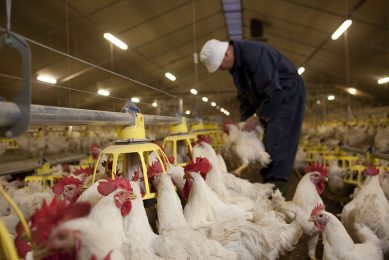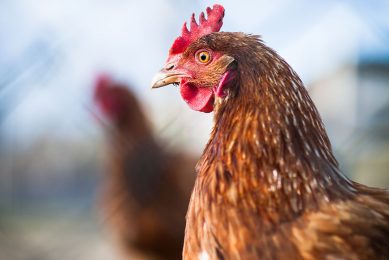IPE summit: Poultry Industry sustainability examined by Tyson CEO
“When you borrow something you need to return it in at least as good a shape or better,” said Donnie Smith, CEO and president, Tyson Foods., at the Animal Agriculture Sustainability Summit held as part of the International Poultry Expo and International Feed Expo.
He said that returning what you use in as good a shape or better is how Tyson approaches everything and part of how it defines sustainability. “For Tyson, sustainability touches every part of our business,” he commented. For example, Smith said Tyson “borrows” its team members when they arrive at work and that the goal of their safety programs is to return team members to their families at the end of the day in the same condition in which they came to work.
Smith said that companies need to ask the question, “Are we adding value to our customer’s business profitably? And in so doing, are we managing the social and environmental aspects of our business for future generations?” He remarked that the answer to this question is really how the company defines sustainability.
The four “Ps” of sustainability for Tyson are people, planet, products and profits. Smith said that environmental stewardship at Tyson is about more than just obeying regulations; it is about a process of continual improvement and protecting the environment for future generations. “There is a great moral and ethical case for sustainability. There is also a great business case for sustainability,” he commented.
Smith reported that Tyson has three facilities that are now “landfill-free.” These operations recycle everything they can, and the non-recyclable material is burned to generate electricity. Smith remarked that burning trash for energy makes more sense than using food to make fuel, as the heavily subsidised corn-based ethanol program in the US does.
Smith commented that the general population is losing its connection with agriculture. He challenged the poultry industry to take every chance it gets to educate the public and to present its story. “We need to do a better job as an industry of telling our story,” Smith remarked. “The story is going to be told. Do we want to tell it, or do we want to let „them‟ tell it? The person that steps up to the podium first, shapes the discussion.”
Because of rising income levels and an expected human population increase of 3 billion by 2050, Bryan Weech, director, livestock agriculture, World Wildlife Fund, said the world will need to triple food production. There really isn’t any more farmable land available, so this increase in food production will have to come through improvement in production practices and improved plant and animal genetics.
Weech said the focus of sustainability efforts need to be on science-based solutions and that embracing continuous improvement as a goal is essential to keep moving forward. He further commented that the world is currently consuming resources at an unsustainable rate, and we will need to be able to produce more food while consuming fewer resources.













